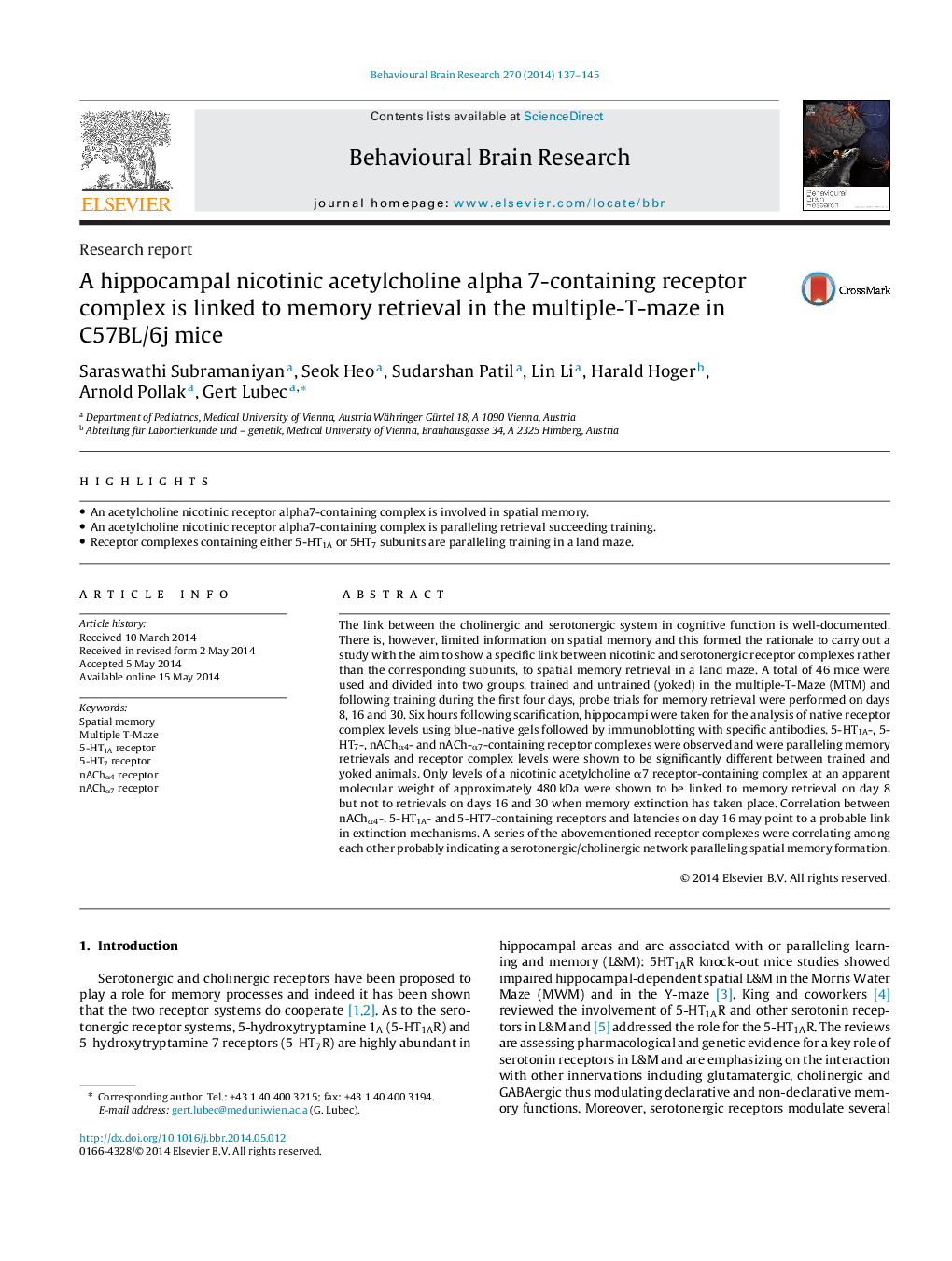| Article ID | Journal | Published Year | Pages | File Type |
|---|---|---|---|---|
| 6257914 | Behavioural Brain Research | 2014 | 9 Pages |
â¢An acetylcholine nicotinic receptor alpha7-containing complex is involved in spatial memory.â¢An acetylcholine nicotinic receptor alpha7-containing complex is paralleling retrieval succeeding training.â¢Receptor complexes containing either 5-HT1A or 5HT7 subunits are paralleling training in a land maze.
The link between the cholinergic and serotonergic system in cognitive function is well-documented. There is, however, limited information on spatial memory and this formed the rationale to carry out a study with the aim to show a specific link between nicotinic and serotonergic receptor complexes rather than the corresponding subunits, to spatial memory retrieval in a land maze. A total of 46 mice were used and divided into two groups, trained and untrained (yoked) in the multiple-T-Maze (MTM) and following training during the first four days, probe trials for memory retrieval were performed on days 8, 16 and 30. Six hours following scarification, hippocampi were taken for the analysis of native receptor complex levels using blue-native gels followed by immunoblotting with specific antibodies. 5-HT1A-, 5-HT7-, nAChα4- and nACh-α7-containing receptor complexes were observed and were paralleling memory retrievals and receptor complex levels were shown to be significantly different between trained and yoked animals. Only levels of a nicotinic acetylcholine α7 receptor-containing complex at an apparent molecular weight of approximately 480 kDa were shown to be linked to memory retrieval on day 8 but not to retrievals on days 16 and 30 when memory extinction has taken place. Correlation between nAChα4-, 5-HT1A- and 5-HT7-containing receptors and latencies on day 16 may point to a probable link in extinction mechanisms. A series of the abovementioned receptor complexes were correlating among each other probably indicating a serotonergic/cholinergic network paralleling spatial memory formation.
